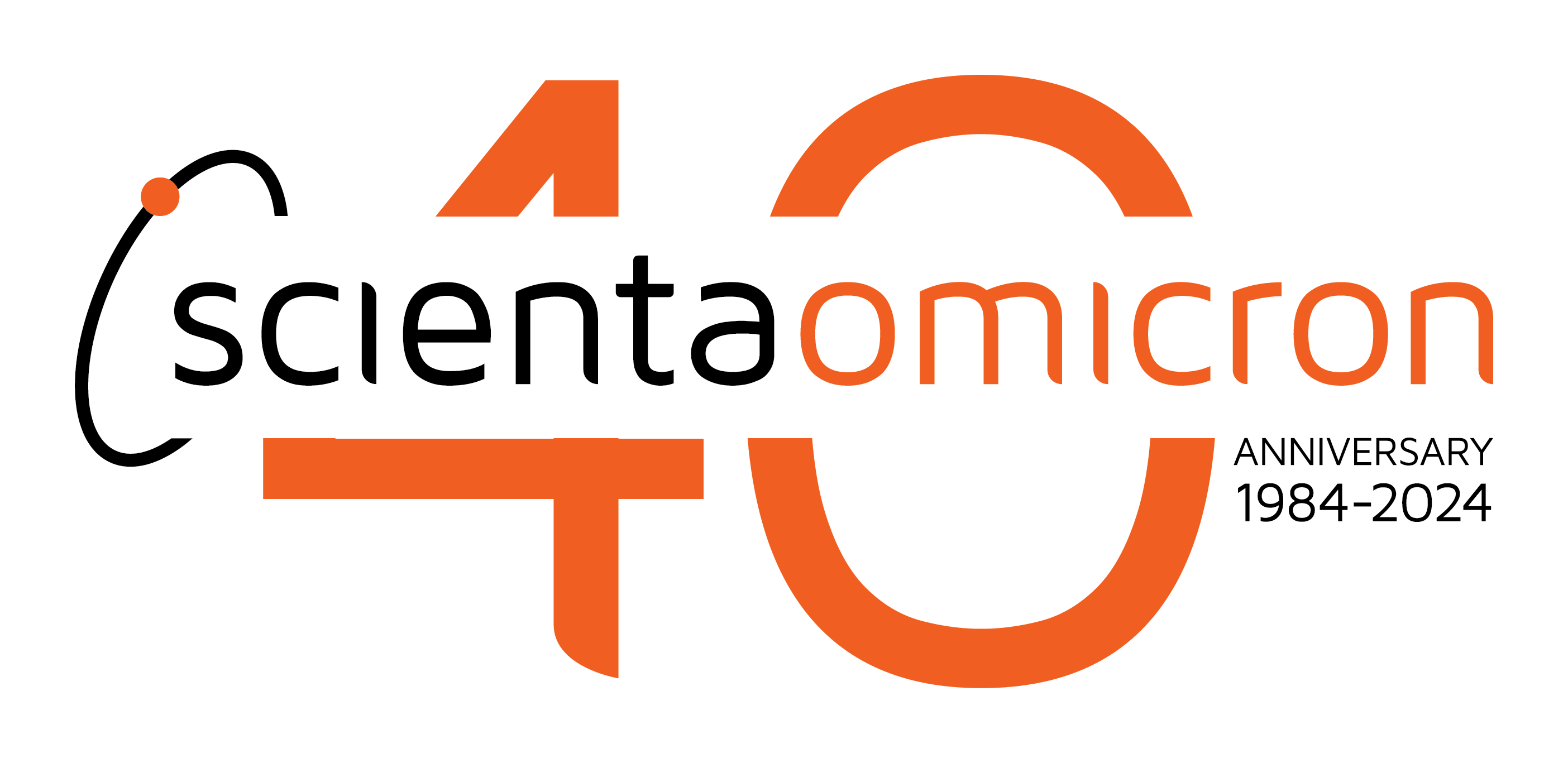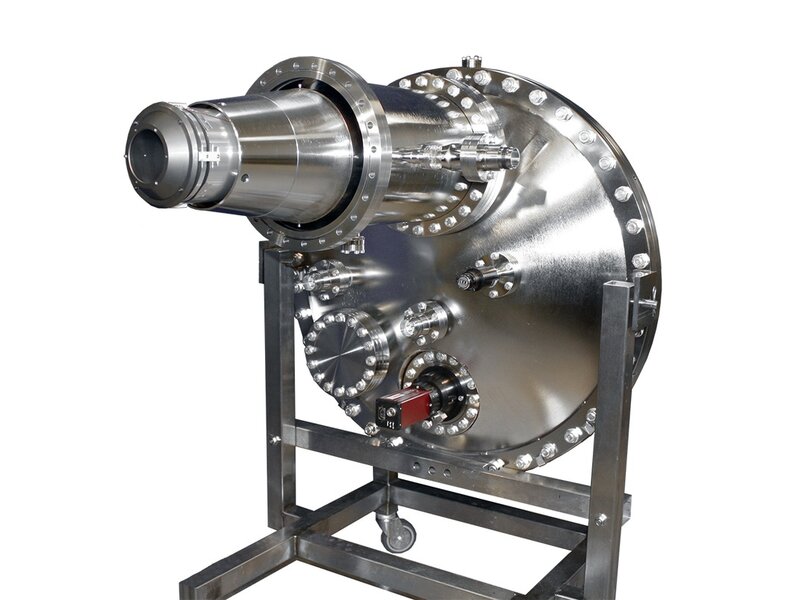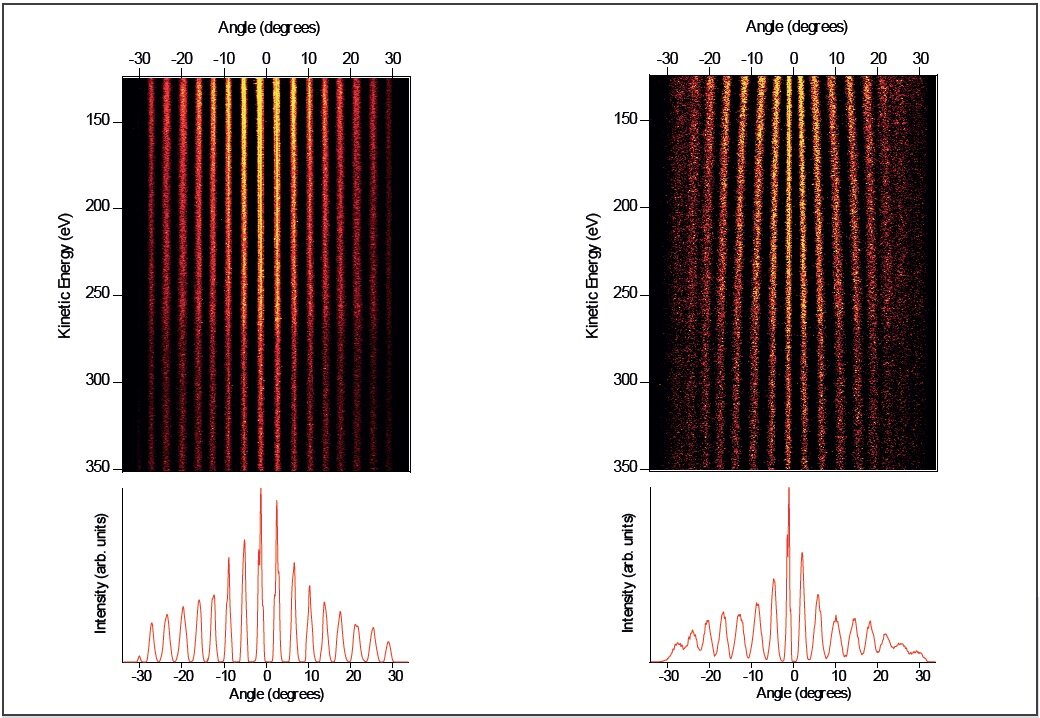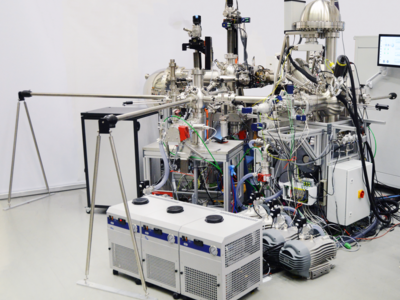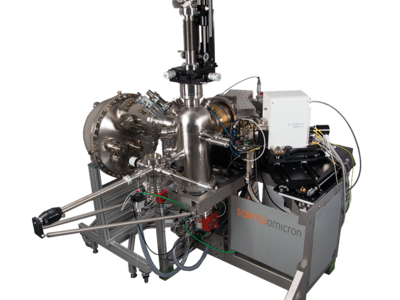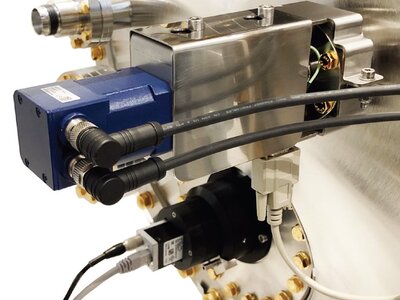The EW4000 electron analyser is a state-of-the-art and widely used electron analyser for HAXPES. It is also one of the key parts is Scienta Omicron’s HAXPES Lab. Expanding the parallel angular detection range to 60° in the full range from UPS via XPS to HAXPES gives great possibilities for high transmission measurements as well as novel Standing Wave and XPD experiments.
Traditional XPS measurements are typically conducted with photon energies below 1.5 keV. As a result, the generated photoelectrons have relatively low kinetic energy and their escape depth becomes limited to a few nanometres from the surface. This makes XPS an extremely surface sensitive technique. In order to study bulk samples, buried interfaces, and in-operando devices one has to increase the escape depth. HAXPES achieves this by using higher kinetic energies greatly extending the analysis depth.
Besides a light source providing high energy photons, HAXPES requires an analyser that can handle the emitted high energy electrons. This requires an analyser design with strong electrostatic lenses with controlled electron trajectories, capable of sustaining stable high voltages, and high signal transmission. All these capabilities are provide by the EW4000 analyser.
More Information
Detection System & Lens Modes
HAXPES makes use of high photon energies which is accompanied by reduced photoelectric cross sections. Efficient measurements for such low cross sections require a modern detection system with low noise and high signal to noise ratio. Our 2D MCP/digital detector system combines low noise and high signal to noise with large dynamic range allowing to clearly resolve weak features next to strong signals.
In combination with the EW4000 extreme wide angle lens, the 2D detection system allows for ARXPS and even HAXPES with 60° parallel detection. Additionally, a higher angular resolution mode with 44° parallel detection as well as a transmission mode for maximum intensity are included.
Image Correction Software
The extreme wide angle acceptance of the EW4000 puts new demands on the data acquisition software. A new real time image correction functionality has been implemented in the software to support high resolution wide range swept mode measurements in angular mode. The image correction routines are very fast and do not influence the acquisition speed. The data storage overhead is as fast and unnoticeable as before.
EW4000 Variants
Depending on the technical requirements, the EW4000 is available in two versions with different maximum kinetic energies of 6 kV and 10 kV, respectively. Besides the maximum kinetic energy and specially configured electronics, the technical specifications are the same.
Specifications
< 40 meV FWHM at 6 kV
< 100 meV FWHM at 10 kV
5 eV – 10 000 eV
± 22°, ± 30°
100 eV – 10 000 eV
-
-
< 10-5 mbar
DN200CF (10” O.D.)
For full specifications and more information about product options, please do not hesitate to contact your local sales representative.
Find the contact details here: Contact Us
Results

Characterization of Buried Interfaces Using Ga Kα Hard X-Ray Photoelectron Spectroscopy (HAXPES)
The extension of X-ray photoelectron spectroscopy (XPS) to measure layers and interfaces below the uppermost surface requires higher X-ray energies and electron energy analysers capable of measuring higher electron kinetic energies....
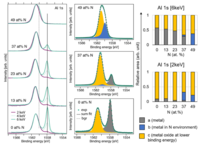
Near-Surface Analysis of Magnetron Sputtered AlCrNbYZrNx High Entropy Materials Resolved by HAXPES
Hard X-ray photoelectron spectroscopy (HAXPES) was used to perform a non-destructive depth profile of AlCrNbYZrNx (x = 0 to ∼50 at.%) thin films. The outermost native oxide of the pristine thin films contained the highest coordination...
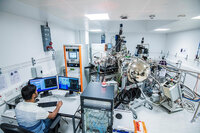
Inelastic Background Modelling Applied to Hard X-ray Photoelectron Spectroscopy of Deeply Buried Layers
We investigate layers of an organic LED material buried deeply below up to 200 nm of organic material using HAXPES (hv > 9 keV). To gain information from deep below the surface using photoelectron...
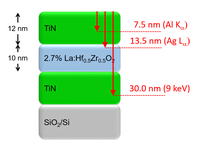
Laboratory Based Hard X-ray Photoelectron Spectroscopy for Buried Interface Analysis of Microelectronic Components
In this work, Nick Barrett et al. have carried out a benchmarking of the Scienta Omicron HAXPES Lab with respect to a synchrotron radiation HAXPES set-up for analysis of buried interfaces for microelectronics applications. The...
Reference Systems
Downloads
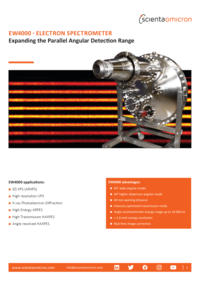
EW4000: Electron Spectrometer
The Scienta Omicron EW4000 opens new directions of science. Where previous Scienta Omicron spectrometers have been a revolution to ARPES, the EW4000 goes one step further. Expanding the parallel angular detection range to 60° gives great possibilities for high transmission measurements as well as novel Standing Wave and XPD experiments.
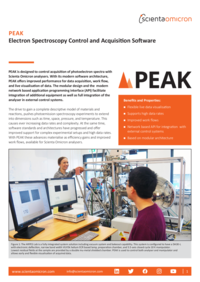
PEAK: Electron Spectroscopy Control and Acquisition Software
PEAK is designed to control acquisition of photoelectron spectra with Scienta Omicron analysers. With its modern software architecture, PEAK offers improved performance for data acquisition, work flow, and live visualisation of data. The modular design and the modern network based application programming interface (API) facilitate integration of additional equipment as well as full integration of the analyser in external control systems.
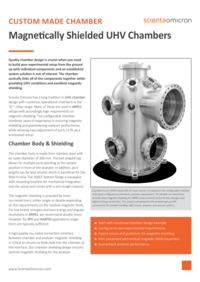
Custom Made Chamber: Magnetically Shielded UHV Chambers
Quality chamber design is crucial when you need to build your experimental setup from the ground up with individual components and an established system solution is not of interest. The chamber centrally links all of the components together while providing UHV conditions and excellent magnetic shielding.
